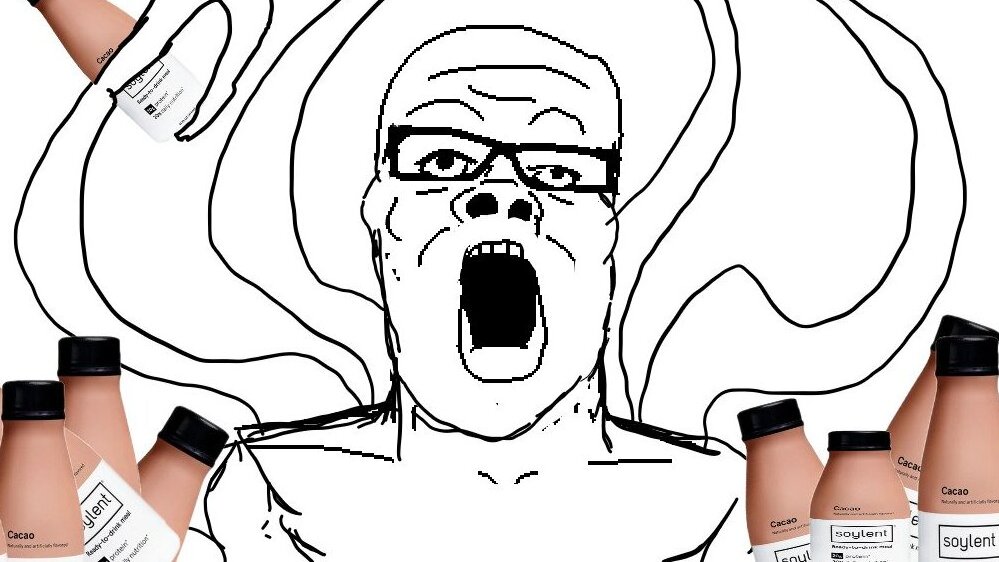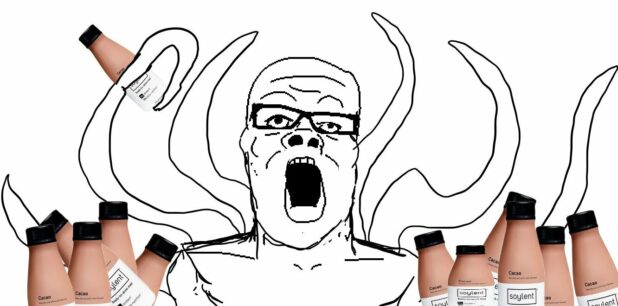I am never going to endorse dairy, unless it is raw.
But the rest of these issues – this is just obvious and self-evident to any single person who has ever experimented with diet.
You can try dairy, if you want. Then try cutting it. See what happens. Your body is very responsive. You don’t need scientists to tell you these things.
Over the past 70 years the public health establishment in Anglophone countries has issued a number of diet rules, their common thread being that the natural ingredients populations all around the world have eaten for millennia – meat, dairy, eggs and more – and certain components of these foods, notably saturated fat, are dangerous for human health.
The consequences of these diet ordinances are all around us: 60% of Britons are now overweight or obese, and the country’s metabolic health has never been worse.
Government-led lack of trust in the healthfulness of whole foods in their natural forms encouraged us to buy foods that have been physically and chemically modified, such as salt-reduced cheese and skimmed milk, supposedly to make them healthier for us.
No wonder that more than 50% of the food we eat in the UK is now ultra-processed.
…
The NHS Eatwell Guide, fondly known to its critics as the Eat badly guide, still tells us to choose lower-fat products, such as 1% fat milk, reduced-fat cheese, or low-fat yoghurt. This is based on the inadequately evidenced postwar belief that saturated fat is bad for your heart.
How embarrassing, then, for government dietetic gurus, that a major study of 4,150 Swedes, followed over 16 years, has last week reported that a diet rich in dairy fat may lower, not raise your risk of cardiovascular disease.
This Swedish study echoes the findings of a 2018 meta-analysis of 29 previous studies, which also found that consumption of dairy products protects against heart disease and stroke.
A body of research also suggests that consumption of dairy fat is protective against type 2 diabetes.
…
We are told to minimise our salt (sodium) intake, even to the extent of not salting water to boil pasta.
However, research published recently concludes that the extremely low levels of sodium intake currently advised are associated with increased heart disease risk, whereas moderate amounts are ideal for most people.
The researchers say that most countries in the world, apart from China and a few others, already have average sodium intakes within the lowest risk range. “There is little evidence that lowering sodium [below this average level] will reduce cardiovascular events or death” it finds.
…
Although meat has been a central component of ancestral diets for millions of years, some nutrition authorities, often with close connections to animal rights activists or other forms of ideological vegetarianism, promote the view that it is an unhealthy food.
The health case against meat is predicated on cherry-picked evidence from low-quality, unreliable, observational studies that fail to draw a distinction between meat in its unprocessed form and multi-ingredient, chemically altered, ultra-processed meat products, such as hotdogs.
Association doesn’t mean causation. Confounding factors exist; someone who eats bacon butties daily might also be eating too much sugar, be consuming lots of additive-laden bread, be under stress, or smoke – the list goes on.
…
Remember when public health advice was to eat no more than two eggs weekly? That pearl of wisdom was based on the mistaken idea that foods containing cholesterol are bad for you.
When it became clear that eating cholesterol had no effect on the cholesterol profile of your blood, government advice was belatedly changed. Now it tells us: “There is no recommended limit on how many eggs people should eat.” Unfortunately, decades of top-down public health misinformation is hard to shift.
The article also mentions that there is no evidence for the “five a day” recommendation for fruits and vegetables, and that basing one’s diet on processed grains increases the risk of heart disease and death.
This is a nice example of the whimsical behavior of the Science entity. First, Science told us that animal foods were bad, and that we needed to base our diet on carbohydrates. Now Science is telling us that actually, the old Science was wrong and that it was all a big oops.
It’s kind of like when Science told Lord Fauci that people didn’t need to use masks, and then told him that actually, people should be double-masking themselves.

